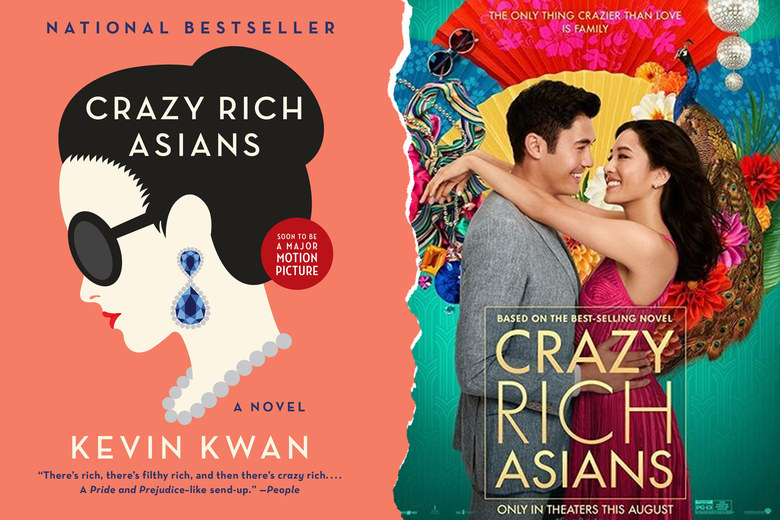
Though often the norm, a film review ought not to reveal a film’s plot. And this review certainly will not.
But this film and its plot are now well-publicized: a clichéd, simplistic story that’s been done-to-death in Bollywood and all Indian cinema and TV for the past thousand years, and one can safely conjecture, in much of Asian cinema as well. It is made worse by boring characters, dull dialogue and a flat, lackluster performance by the lead actor Henry Golding as Nick Young, who despite his candy-face and six-pack abs barely manages to garner interest.
It’s a respite then that the execution of the story is refreshing and that the protagonist is Rachel Chu, a young American Chinese played by Constance Wu. Rachel meets her boyfriend’s mother, the matriarch Mrs. Eleanor Young, a Singaporean Chinese played by the stalwart Michelle Yeoh who delivers an understated, powerful performance in a style that’s now her trademark. Both the actress Constance Wu and the character Rachel Chu, then have a huge challenge: to measure up against this established force; a dynamic reminiscent of the film “Crouching Tiger, Hidden Dragon”, where a young Zhang ZiYi as Jen Yu performs against the seasoned Michelle Yeoh as Yu Shu Lien.
Even as the various characters lay stake to their claim in glitzy Singapore with its glittering city-scape and venues beautifully filmed and cleverly placed within scenes in at times so conspicuous a manner that it appears to be one big ad by the Singapore Tourism Board, there is much that entertains and engages—the Singapore brand of humour for example, the tender glimpses into Singaporean tradition and values contrasted by a decadent display of wealth and nauseous obsession with material things, as well as a soundtrack complete with a Cantonese version of Madonna’s famous “Material Girl”.
Many have observed though, this is not a film about ‘Asians’. It’s about super-wealthy Chinese; Singaporean Chinese in particular. Yet it is barely representative even of Singaporean Chinese given that much of the main cast is not Singaporean and speaks with American or British accents.
Why this film has been heralded as the breaker of stereotypes and saviour of Asian representation in Hollywood, is something not worthy of bother. Every film for that matter is non-representative since every story is about specific persons who belong to specific socio-cultural-economic backgrounds. That, automatically precludes, marginalizes, misrepresents the million other categories of people the world is divided into. The film’s exclusion of the portrayal of other groups of people in fact aptly represents the big bubble the super-rich live in, disconnected from the common-man and his world.
The issue at stake should be whether the film does justice to the people of the world it represents. I would say it does, and with a panache!
CRA is a Rom-Com, a fantasy set in Singapore, about the opulent. It was made for entertainment. Not all writers and creatives want to save the world from itself and it is unfair of the audience to expect that, especially from Kevin Kwan, the Singapore-born American writer of the namesake book, who himself is a wanted man in Singapore for defaulting on his National Service.
Coincidentally (or not), Kevin Kwan’s legal status in Singapore is a subtle embodiment of what the film stands for in certain ways: the age-old conflict between the West and the East, between personal freedom and one’s duty to an entity larger than oneself.
In the film, Rachel Chu and Eleanor Young battle it out in a final potent and profound scene of a Mahjong game (a detailed analysis of which can be found in other posts online).
Who wins the game, is best decided by watching the film.
In the meantime, Rudyard Kipling’s words ring true with insight:
“Oh, East is East, and West is West,
and never the twain shall meet,
Till Earth and Sky stand presently at God’s great Judgment seat;
But there is neither East nor West, Border, nor Breed, nor Birth,
When two strong (wo)men stand face to face, though they come from the ends of the earth!”
- The Ballad of East and West, Rudyard Kipling (1889)
==========================================================================
